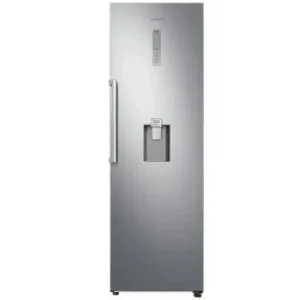What is the ideal temperature for a refrigerator?
The ideal refrigerator temperature is a key factor in keeping food safe and ensuring its quality. Maintaining a constant and correct temperature not only preserves the taste of food, but also prevents the growth of harmful bacteria that can lead to food poisoning. In this article, we will discuss the ideal temperature of the refrigerator through authorized English references.

What is the ideal temperature for a refrigerator?
Having a controlled refrigerator temperature is important to ensure food safety. By maintaining a temperature between 1 and 4 degrees Celsius, you can effectively and safely reduce the risk of food poisoning and extend the shelf life of foods, but what is the ideal refrigerator temperature?
Ideal Temperature
According to guidelines from the UK’s National Health Service (NHS) and the World Health Organization (WHO), the ideal refrigerator temperature should be between 1 and 4 degrees Celsius (34 to 39 degrees Fahrenheit), so that most foods remain safe to consume for longer periods of time and bacteria don’t grow as quickly, which helps reduce the risk of food poisoning and keeps food in good condition for longer.
Adjust the temperature of your home refrigerator using an internal thermometer, as many refrigerators do not give an accurate temperature reading. It is therefore advisable to check the temperature regularly to ensure that food continues to be stored safely.
Why it’s important to maintain a constant temperature
The importance of keeping the temperature of your home refrigerator within the recommended ideal temperatures lies in the following points:
- Prevent bacterial growth: Bacteria multiply rapidly at high temperatures, especially in perishable foods such as meat and dairy products. At ideal refrigerator temperatures (1 to 4 degrees Celsius), bacterial growth can be significantly reduced. According to the Centers for Disease Control and Prevention (CDC), the numbers of harmful bacteria in food can double if the refrigerator temperature is above 4 degrees Celsius
- Increase the shelf life of food: Keeping food at the right temperatures helps extend its shelf life. At elevated temperatures, food may start to spoil faster, leading to waste and the risk of poisoning. Conversely, at the ideal temperature, foods stay fresh for longer.
- Protecting perishable foods: There are some foods that should be kept in the refrigerator to avoid spoiling quickly, for example, fresh meat, fish, and eggs should be kept at low temperatures to avoid the growth of bacteria such as salmonella.
Negative effects of high or low temperature
If the temperature of the refrigerator is too high, it may lead to food spoiling faster, and it may also lead to the multiplication of bacteria, while if the temperature is too low, some foods may freeze, which affects the texture and taste of the food when reheated, so it is necessary for the refrigerator to be in the ideal range between 1 and 4 degrees Celsius.
Additional Tips for Maintaining the Perfect Refrigerator Temperature
There are a number of tips to help keep your home refrigerator ‘s temperature within optimal levels:
- Don’t overload the refrigerator: It is important not to put too much food in the refrigerator at the same time. Overloading may prevent cold air from being evenly distributed inside the refrigerator, leading to overheating in some areas.
- Clean your refrigerator regularly: Your refrigerator should be cleaned regularly to make sure it works efficiently. The presence of food debris may hinder the cold air from distributing heat well.
- Do not open the door excessively: Opening the refrigerator door continuously causes cold air to escape, which raises the temperature inside the refrigerator. Therefore, it is advisable to open the door only when needed.
Leaders Center | The largest electrical and electronics store
Shop the best types of refrigerators from the most famous international brands found only at Leaders Center,and all electrical and electronic appliances from Leaders Center, and enjoy the best discounts and permanent offers.







